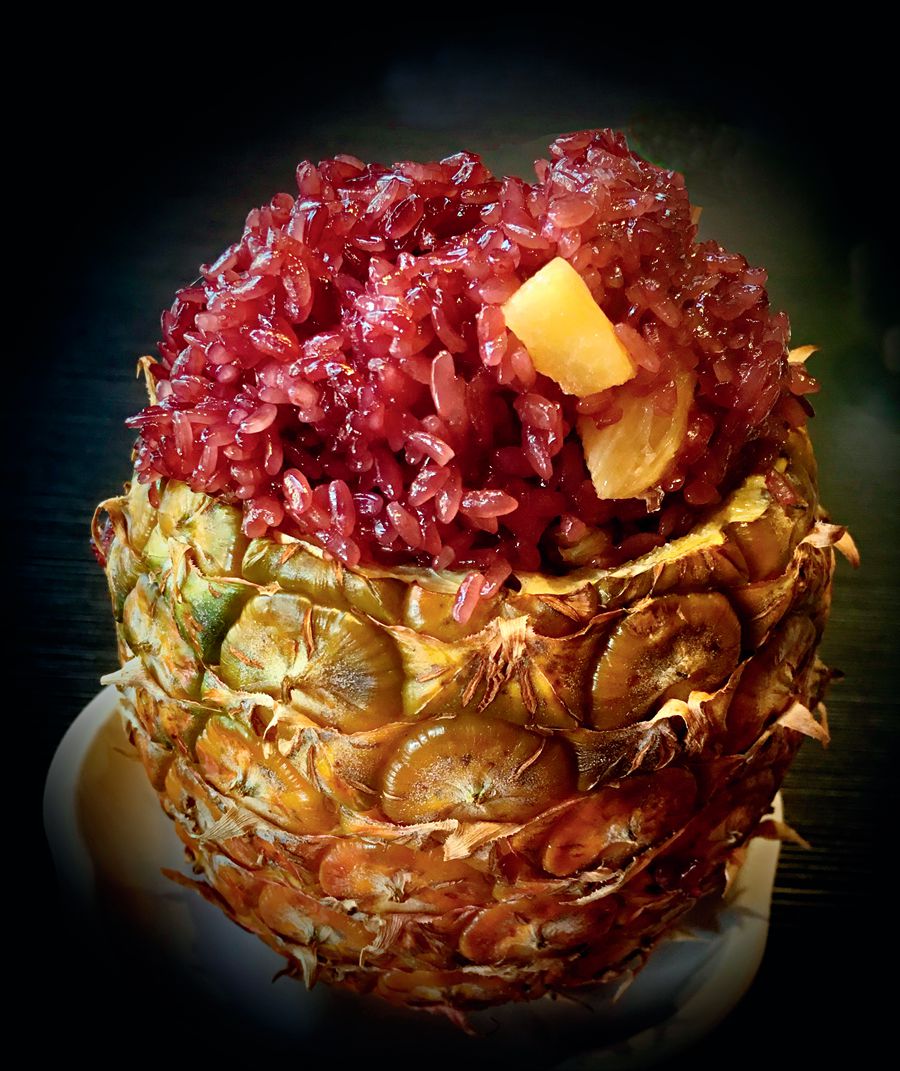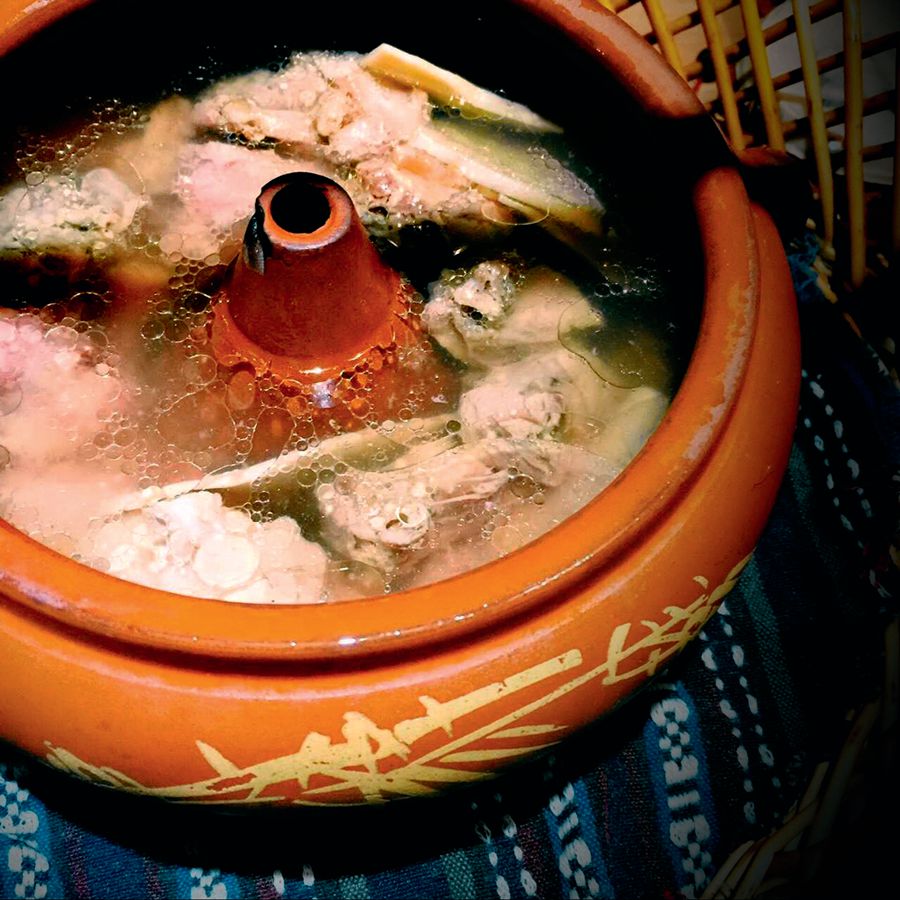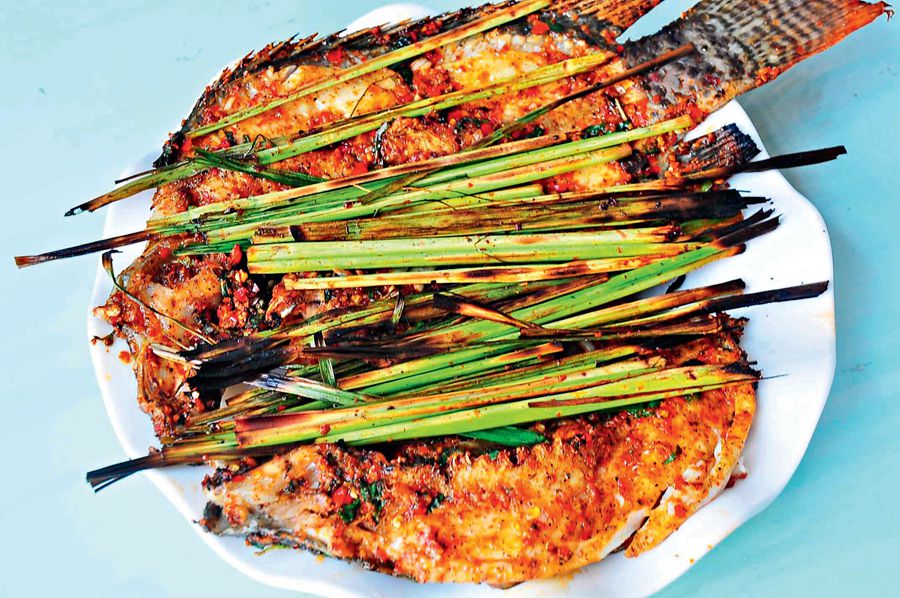YUNNAN Province in southwest China boasts a mild climate and is regarded as a treasure trove of flora and fauna. The clear sky decked with varied shapes of clouds wins the province worldwide fame.
Yunnan’s cuisine, often also referred to as Dian cuisine, has its own unique style among Chinese cuisines. It combines the dietary traditions of 25 ethnic minorities with that of the Han people, making it a perfect mix of many different styles of cooking. The main features of Yunnan’s cuisine include the use of various raw materials, unique cooking methods and distinctive and rich tastes of ethnic minorities.
Pineapple-flavored Purple Rice
Yunnan is home to some 250 species of edible mushrooms, considered a high number around the world. Each type has a unique taste and is nutritious. Thanks to the warm climate, flowers are in full blossom all year round. They are not only ornamental, but also used as cooking ingredients.
Yunnan’s cuisine is famous for its culinary skills. For example, meat and fish are usually grilled with a local fragrant herb called lemongrass grown in Xishuangbanna’s tropical rainforest in the southernmost part of Yunnan. Eating utensils of ethnic minorities are mostly made of natural materials, such as bamboo, pottery, wood and leaves. Bamboo-tube sticky rice perfectly combines the fragrance of bamboo and glutinous rice. Hollow pineapple stuffed with steamed purple rice has the refreshing flavor of fruit. Chicken stewed in purple pottery from Jianshui County is mouthwatering with tender meat and nutritious soup.
Steaming Pot Chicken Soup
There are assorted delicacies in Yunnan: Shiping tofu, matsutake dishes, Nuodeng ham, steamed-pot chicken, bridge-crossing rice noodles, and roasted fish with fragrant herb. There are many dietary cultures and customs, such as the Long Street Banquet of the Hani minority, wedding wine of the Dai minority, Sandieshui, known as the “Full Manchu-Han Banquet of the Naxi minority” and the steamed pork made by the Yi minority.
The Long Street Banquet is a tradition that the Hani minority hosts for the Angmatu Festival to worship their deities of the citadel and the dragon god for a good harvest by presenting offerings. Tables are laid end to end without a gap along the street stretching over 700 meters long, whilst each family presents nearly 40 delicacies with good wines.
Grilled fish with lemongrass is a distinctive dish of the Dai ethnic minority. Tilapia is a common fish with tender meat and rich in unsaturated fatty acids and protein. The dish has two features: a blended flavor of roasted fish and the fragrance of bamboo, the combination of lemongrass and cilantro.
Fish roasted with a kind of local grass as the seasoning.
The cooking method is simple: scale the fish, split the belly, remove fish viscera and wash it clean; chop scallion, ginger, garlic, green pepper and cilantro, and sprinkle salt onto them; pour seasonings into the fish belly, bind up the fish with leaves of lemongrass, fasten the fish inside green bamboo stripes, and then grill it on the charcoal. When the fish is well-done, apply lard onto it and grill for another five minutes. Then it is ready to be served.


